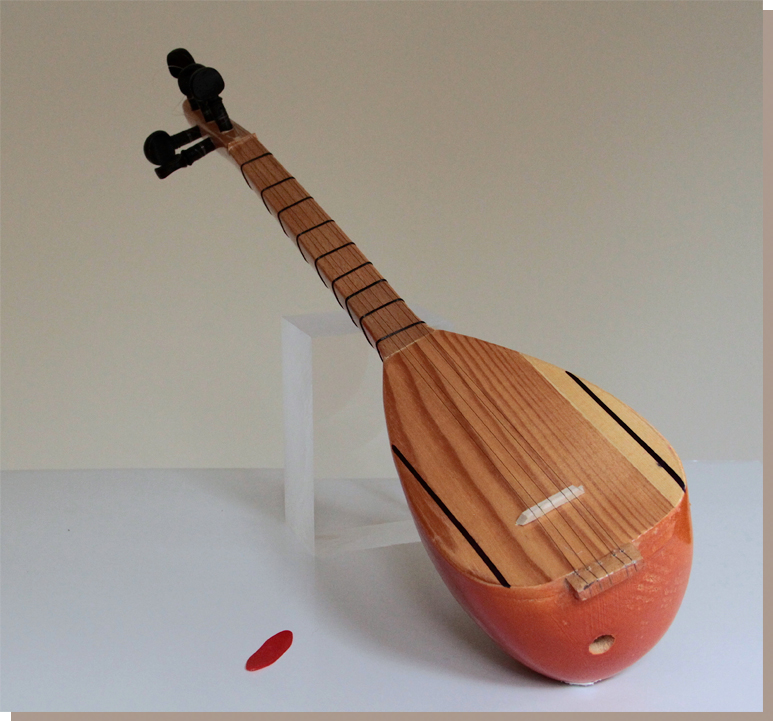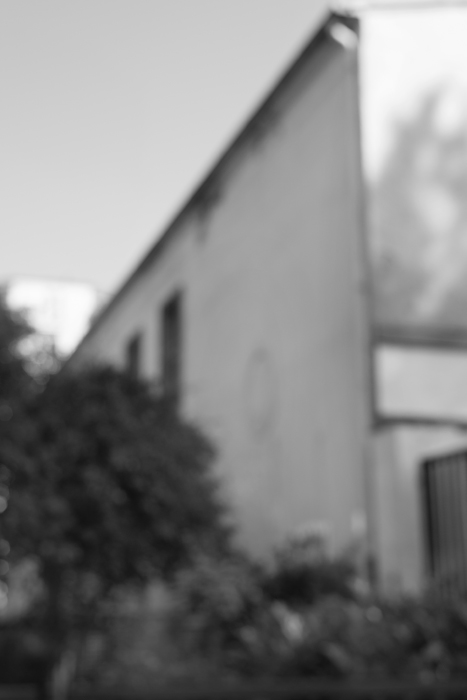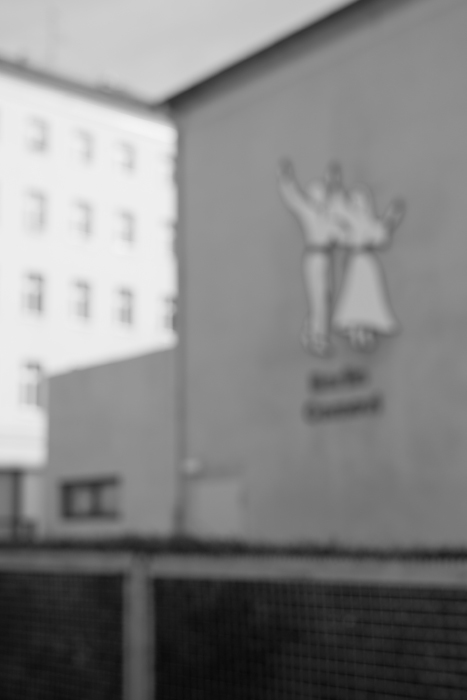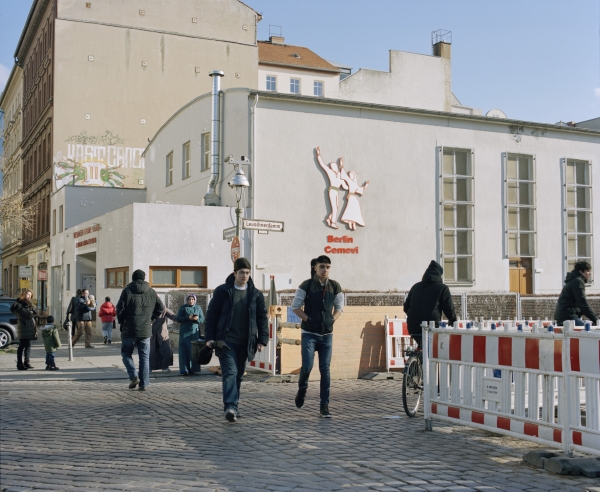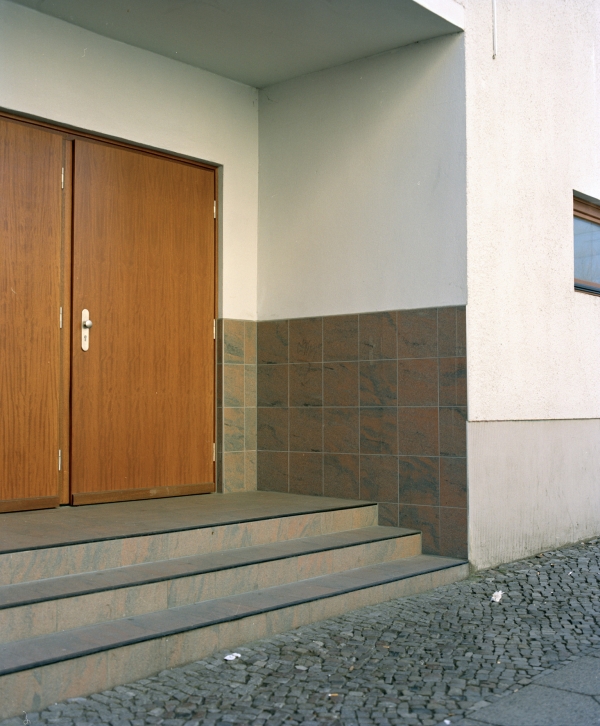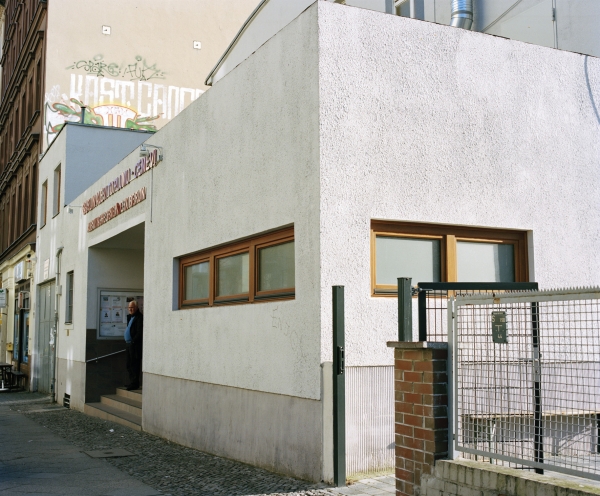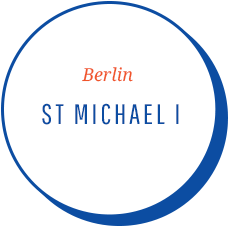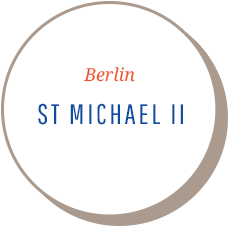MEDIA CONTROVERSY
On a hot summer’s day in 2011, raised voices can be heard coming from the otherwise quiet Waldemarstraße. Many people are gathered on the steps at the entrance of the Alevi community’s building in Berlin. They keep breaking out into a chant, directed at a man approaching the building, accompanied by a camera team.
The man is the author Thilo Sarrazin, and he’s visiting the Alevi community today. His visit, initiated and supported by the journalist, Güner Balcı, for the German TV programme "Aspects", triggers a host of emotions. One year earlier, Sarrazin's book Germany Abolishes Itself was published and millions of copies were sold. His biological racism slandered Turkish and Arab communities, in particular those living in Germany.
Once the cries of "Get lost!" had died down, a representative of the Alevi community stepped forward and read out a statement. In the inital request, which the community received from the television broadcaster, it had been announced that the programme would be looking at the activities and work of the Alevi community.
The fact that Sarrazin was now arriving as a guest threw up considerable doubts about how the community would be portrayed in the documentary.
The community now saw no reason why they should comply with the interview request. On the contrary, they wanted Sarrazin to leave immediately. “Those who stir up racism or prejudice ... are unfortunately not welcome in our building ... We, the Alevis, have been victims of this kind of prejudice for centuries”, said the speaker, after he had read out the official statement.
In places where religious groups come together, situations often arise where they have to defend themselves against racism and assert their existence and raison d'etre. This is especially true amongst minorities when mainstream society – whether directly or indirectly, whether by virtue of their religion, nationality or ethnic origin – denies them this right. The vociferous protest against Sarrazin's visit, made by the Alevi community and the area’s residents, symbolises this struggle for recognition.
The Saz, also known as the Bağlama or Baôlama, is a wooden lute. It has seven strings, tuned in quarter tones. The word “Saz” comes from the Persian language and broadly means “instrument”. The Alevis also refer to the saz as the “Qur’an with strings”, because of its use as an accompanying instrument for sung poems, which convey the history and religious traditions of the Alevis.
Dance, accompanied by the music of the saz, is a central component of the “Cem”, the Alevi ceremony. A Cem consists of a complex liturgy, given structure by the saz player and singer, known as the “Aşık” or “Zakir”. Those involved in the Cem ceremony turn and swirl to the music, imitating the ascension of Muhammad, the planetary system, and the cycle of nature.
On the facade of the Alevi community’s building in Berlin, there’s a relief-like depiction of this ritual, which to outsiders, looks more like a couple dancing.
The object shown here is used for decorative rather than functional purposes.
TIMELINE BERLIN’S ALEVI COMMUNITY
2016
TODAY
Germany’s Alevi community is made up of around 500,000 members.
2002
2002-2006
The Berlin Senate recognised the Alevis as a religious community, as defined by the Education Act. Following this, the Alevi belief system was introduced into religious education lessons at some primary schools in Berlin. Since 2006, the Alevis have participated in Berlin’s Social City project and in neighbourhood management schemes.
1999
1999
The Alevi Community of Berlin moved into the former building of the New Apostolic church in Kreuzberg. The community centre it had used previously at Lindower Straße in the district of Wedding was by then too small for its 1,500 members, and the new building was bought for 1.7 million deutschmarks. It was redesigned and has been used since then as a "cemevi" (meeting house or community centre). With its religious-cultural programme, it was the first of its kind in Germany.
1979
1979
In 1979 the Alevi Community of Berlin (Turkish: Berlin Alevi Toplumu) was founded.
1961
1961
In Bad Godesberg in West Germany, the Federal Republic of Germany and Turkey signed a "recruitment agreement". Similar agreements with Italy, Spain and Greece had already been made. Turkish workers were now able to apply for jobs in Germany and enter the Federal Republic as "guest workers". Their stay was initially limited to two years. Among those arriving were Alevis. This was the beginning of the Turkish diaspora in Germany.
1958
1958
On the site of a former factory (now Waldemarstraße 20 in Berlin-Kreuzberg), a building was converted into a Christian meeting place. In December, the inauguration of a new Apostolic Church took place. Forty years later, the church was closed.
1923
1923
Founding of the Turkish Republic. Suppressed during the Ottoman Empire, the Alevis put their hopes in the new president, Atatürk, and the new secular state. Although the Alevi religious community, a branch of Shi‘a Islam, held equal legal status, its members still faced persecution and discrimination.

